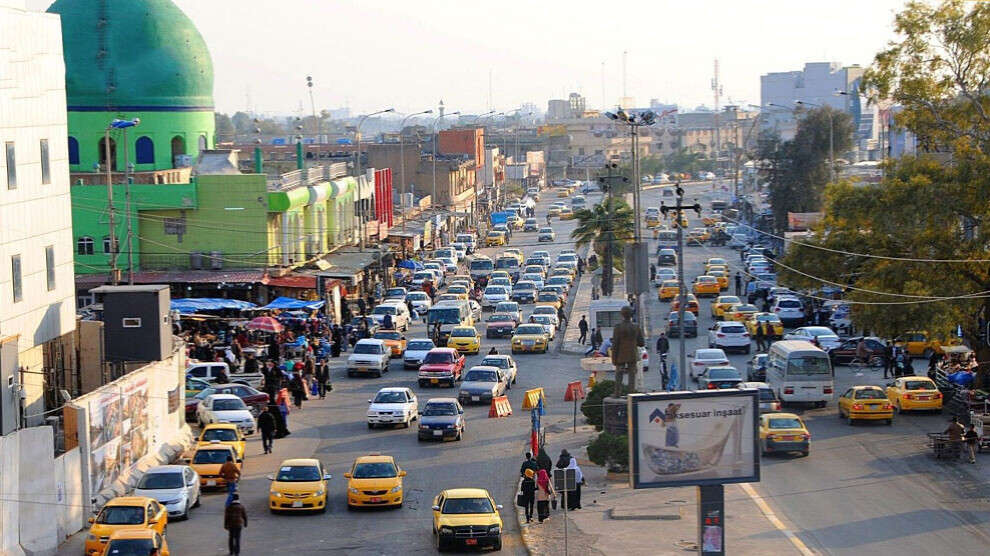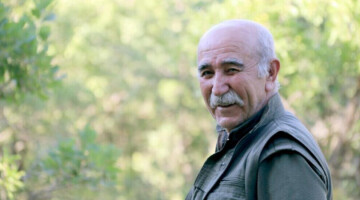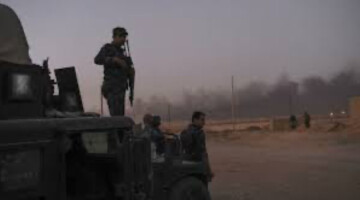In recent years, there have been repeated protests against the policies of the governments in Baghdad and Hewlêr (Erbil), both in Iraq and in the Southern Kurdish autonomous region, with countless people losing their lives in the crackdown. Economist Dr. Ezat Sabir Esmaeel, who sat in parliament for the Patriotic Union of Kurdistan (PUK) and served as head of the Finance Committee and member of the Energy Committee, believes that the main reason for the protests in the economic crisis in the country, which has been ongoing since 2015, is the economic policy inability of the autonomous government.
Calculations based on a constant oil price
A 50-year contract on oil exports was concluded between the Kurdish autonomous government and Turkey in disregard of the Iraqi constitution. Only the export of oil from facilities built after 2005 are constitutional. According to Esmaeel, the government in Hewlêr calculated higher revenues from the contract than would be possible through cooperation with the Iraqi government: "The oil from the production facilities created after 2005 is not enough for exports to Turkey. Exports began after the contract was closed. In return, the Iraqi government decided to cut Hewlêr's budget. At that time, the Kurdish autonomous government made its planning according to a crude oil price of 80 to 90 dollars per barrel. According to this calculation, much higher revenues could be obtained by exporting than by giving the oil to Baghdad. In 2015, the world price of a barrel of crude oil fell to $27. In this situation, the income from oil exports fell below the amount of the budget actually payable by the Baghdad government. Because the price of crude oil did not reach the $90 mark again until 2020, we are now faced with withholding civil servants' salaries and supply problems," the expert explains.
The population pays the bill
According to Esmaeel, moreover, only 30 percent of oil revenues actually reach public institutions. 70 percent go to Turkey, to private companies domestically and in England and Norway, and to the coffers of Turkey's Halkbank and Britain's HSBC. "The remaining 30 percent is not enough for salaries and public utilities. Therefore, the government has moved to pay wages only from time to time. Usually nothing is paid out for months, with civil servants receiving salaries for one or two months in between. In 2020, the autonomous government paid its civil servants their salaries in only five out of twelve months. And those five months' salaries paid out were reduced, in some cases, to the point where the cumulative difference was equivalent to another month's salary. So, effectively, no salary was paid for eight months."
Official figures are exaggerated
Dr. Ezat Sabir Esmaeel considers the figure of $27 billion in national debt repeatedly cited by the Kurdistan Regional Government Prime Minister Masrour Barzani to be exaggerated. He states that this debt could amount to ten billion dollars at most, yet this calculation would still ignore an important part of the debt: "Hewlêr is in debt by eight months' salary from 2020. There were also wage cuts and unpaid wages in 2019. State employees are also still owed salary for 2018. In none of the last five years have salaries been paid in full. This is real debt. The government claims it is in debt to Turkey and to the oil companies it works with. In fact, it is in debt because it is using the people's money."
Buying gas at twice the market price
However, the misplanning extends to areas other than oil exports, as Esmaeel illustrates with an example from electricity production: "The autonomous government buys the gas for electricity production for one dollar per liter instead of the market price of 50 cents. From 2010 to 2016, $20 billion was spent to purchase eight billion dollars’ worth of gas. Thus, the government has paid a total of twelve billion dollars more. Lack of plans and policy programs have led to this debt. But I must also reiterate; the official amount of debt is not correct."
Agreement with Baghdad would be best
"If we cannot reach an agreement, we will harm each other, Esmaeel continues. But for Southern Kurdistan, he says, the damage is greater. "If we supplied Baghdad with 250,000 barrels of oil a day, we would receive a budget of ten trillion dinars. With that, all salaries could be paid. If the government sells the oil on its own, it only takes in five trillion dinars. Here there is an obvious loss of 50 percent of the potential revenue. Moreover, if the 250,000 barrels were handed over, there would still be more than 200,000 barrels that could be sold on their own. This could be used to carry out some projects and pay the debts to the corporations and for the pipelines."
Dispute over tariff revenues
Another point of contention, he said, is customs revenue at border crossings. According to Esmaeel, however, the law is clear on this: "According to the constitution, revenues from border crossings should be sent to the central government. The latter then sends part of this revenue to the regions. However, the Southern Kurdistan government does not comply with this. It does not send these revenues to Baghdad."
Many ways to overcome the crisis
Dr. Ezat Sabir Esmaeel sees the causes of the crisis in Southern Kurdistan and Iraq in various forms of government failure: "There is a wealth of natural resources, especially oil. With a proper plan and projects and the right understanding, these could be developed, sold and used for the benefit of the population. Then it would become apparent what a rich country Iraq is. Solving Iraq's problems is actually easy. Iraq is a founding member of OPEC and exports three million barrels of oil a day. Iraq is also a rich country in terms of agriculture. In addition, there is potential for tourism. So there are many opportunities to overcome the crisis. A sincere government would be sufficient. If there were a government that put the interests of the people first, it would be very easy to solve these problems."














